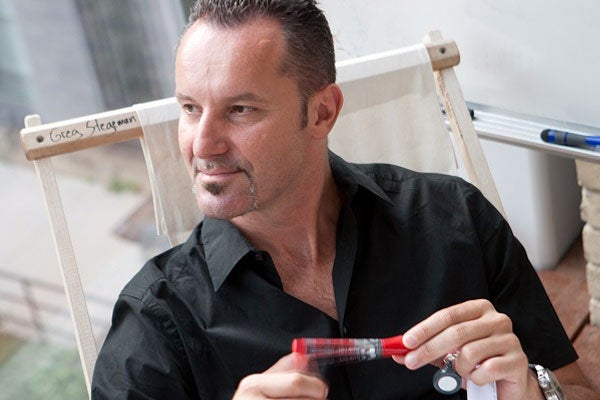
How disease-related proteins work; a "truly momentous" discovery
Published: July 8, 2013
University of Toronto researchers are helping demystify an important class of proteins associated with disease—a discovery that could lead to better treatments for cancer, cystic fibrosis and many other conditions.
Professor Igor Stagljar of the Faculty of Medicine’s Donnelly Centre for Cellular and Biomolecular Research, and his team have developed the first road map for an important group of proteins known as ATP-binding cassette (ABC) transporter proteins.
“Our discovery shows how ABC transporter proteins affect cancer and other diseases, and this knowledge can help us develop better, more targeted drugs," said Stagljar. "This is truly momentous."
The ABC transporter proteins are crucial components of every cell, and are also involved in tumor resistance —when cancerous tumours become resistant to drug therapy.
Scientists have struggled to understand how these proteins work and communicate with other proteins but Stagljar and his team, including first author Dr. Jamie Snider, have solved the mystery by using something called Membrane Yeast Two-Hybrid (‘MYTH’) technology to see how these transporter proteins interact with other vital components in the cell.
“Cell systems are complex and we need to have a solid grasp of how the individual pieces fit together in order to understand why certain diseases occur and how to best treat them,” says Stagljar, who is also cross-appointed to the Departments of Biochemistry and Molecular Genetics.
ABC transporter proteins act as cellular gatekeepers by retaining nutrients and expelling toxins from the cell. If these proteins are not working properly, it can cause a number of diseases including: cystic fibrosis; age-related macular degeneration; Tangier disease; and Dubin-Johnson syndrome.
ABC proteins can also cause cancer cells to reject chemotherapy drugs which makes treatment less effective.
The study was published July 7, in Nature Chemical Biology.
Suniya Kukaswadia is a writer with the Faculty of Medicine at the University of Toronto.



